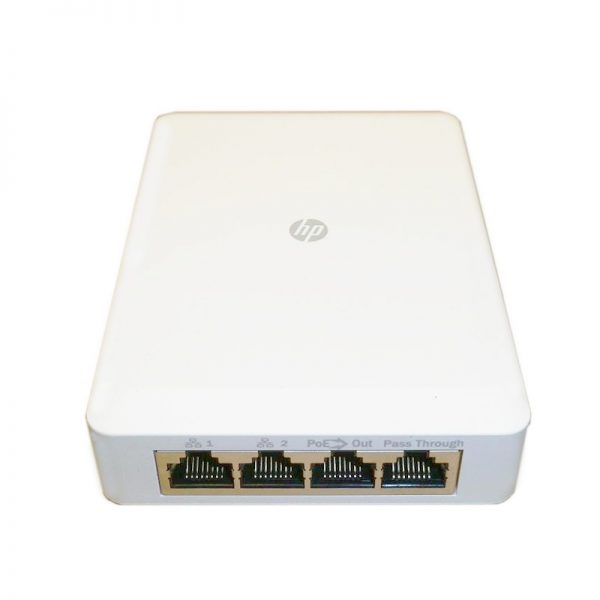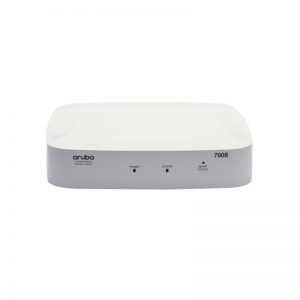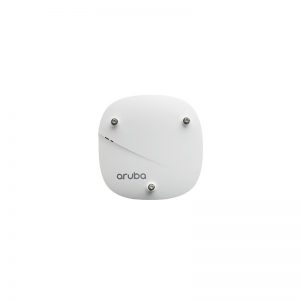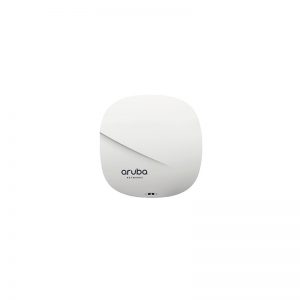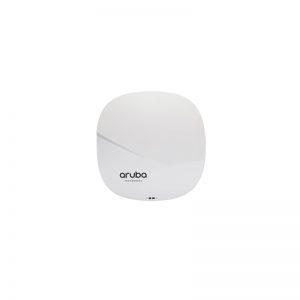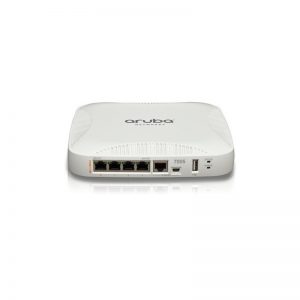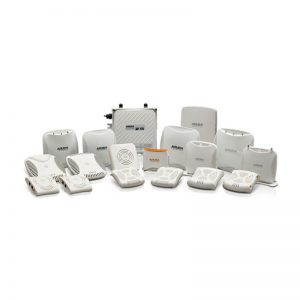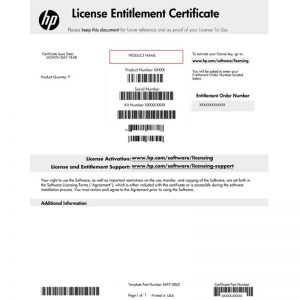Product Details
JG972A
| Model: | JG972A – HP 417 Access Point |
| Detail: | HP 417 802.11n (WW) Unified Walljack |
Description
JG972A Specifications |
|
|
Type |
HP 417 Single Radio 802.11n (WW) Unified Wired-WLAN Walljack |
|
Ports |
|
|
AP characteristics |
Radios (built-in): 802.11b/g/n Radio operation modes: Client access, Packet capture AP operation modes: Controlled Wi-Fi Alliance: b/g/n Wi-Fi Certified Antenna: Internal omnidirectional antenna Number of internal antennas: 2 |
|
Dimensions |
3.39(w) x 0.98(d) x 4.72(h) in (8.6 x 2.49 x 12 cm) |
|
Weight |
0.42 lb (0.19 kg) |
|
Memory and processor |
Single core @ 560 MHz, 128 MB flash, 128 MB SDRAM |
|
Mounting and enclosure |
Indoor; Designed for mounting in a standard wall outlet box or on optional Flush Mount / Desktop Mount kit. |
|
Operating temperature |
32°F to 113°F (0°C to 45°C) |
|
Operating relative humidity |
5% to 95%, |
|
noncondensing Non-operating/ Storage temperature |
-40°F to 158°F (-40°C to 70°C) |
|
Non-operating/ Storage relative humidity |
5% to 95%, noncondensing |
|
Altitude |
up to 13,123 ft (4 km) |
|
Electrical characteristics |
Description: Powered Device (PD): The device will be powered by any standard IEEE 802.3af PoE source and with PoE it will provide Class 1 or 2 on port 3. To provide Class 3 PoE output on port 3, the unit must be powered via IEEE 802.3at PoE+ power. DC voltage: Powered by PoE Maximum power rating: 6 W |
|
Frequency band and Operating channels |
|
|
Radio |
EN 300 328; ARIB STD-T66; RSS-Gen (Canada); IDA (Singapore); OFTA (Hong Kong); DSPR (Japan); RCR STD-33; RSS-210; FCC Parts 15.207, 15.209 & 15.247 (US); MSIP (Korea). |
|
Safety |
UL 60950-1; IEC 60950-1; EN 60950-1; CAN/CSA-C22.2 No. 60950-1 |
|
Medical |
EN60601-1-2 |
|
RF Exposure |
FCC Bulletin OET-65C; RSS-102; EN 50385; CFR 47, Part 2, Subpart J; ANSI/IEEE C95.1 (99); Ministry of Health Safety Code 6; Australian Radiation Protection Std. |
|
Emissions |
EN 55022 Class B; EN 60601-1-2; EN 301 489-1; EN 301 489-17; ICES-003 Class B; FCC Part 15, Class B |
|
Mobility |
IEEE 802.11b Higher-Speed Physical Layer Extension in the 2.4 GHz Band IEEE 802.11g Further Higher Data Rate Extension in the 2.4 GHz Band IEEE 802.11i Medium Access Control (MAC) Security Enhancements IEEE 802.11d Global Harmonization IEEE 802.11h Dynamic Frequency Selection IEEE 802.11n Dual Band WLAN Enhancements for Higher Throughput |





